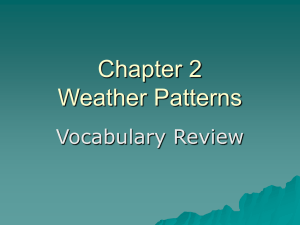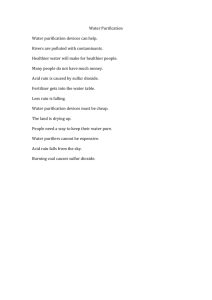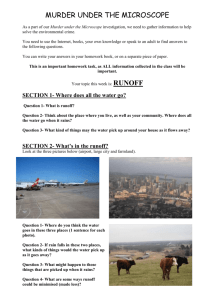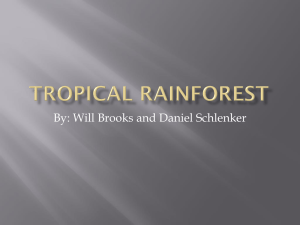setting
advertisement
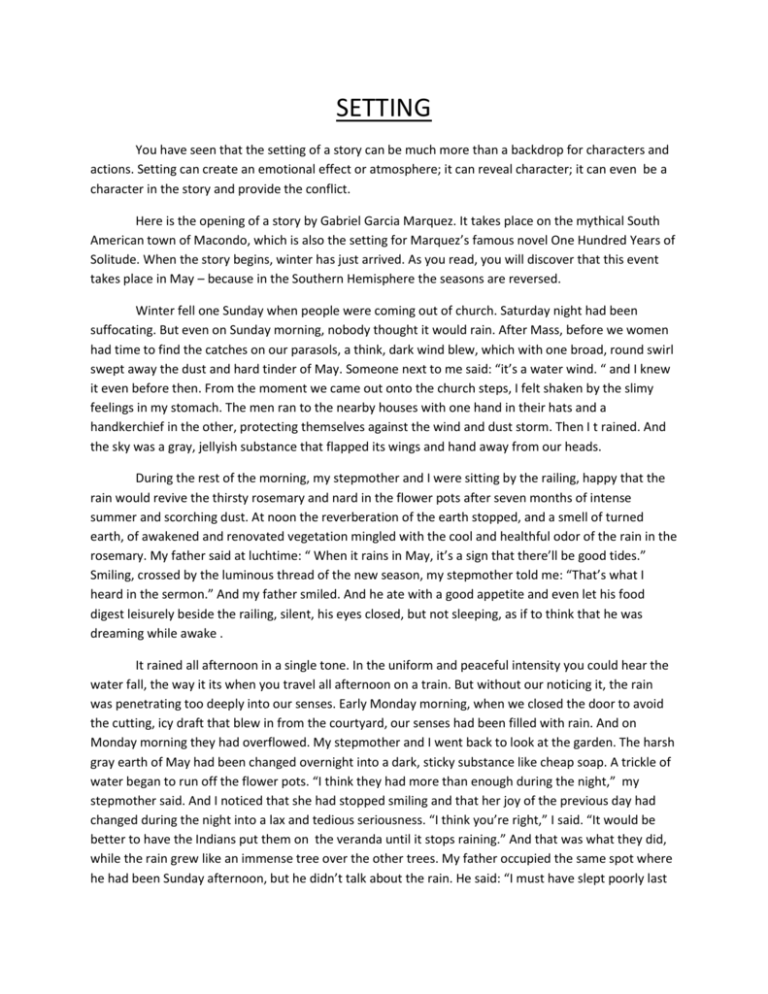
SETTING You have seen that the setting of a story can be much more than a backdrop for characters and actions. Setting can create an emotional effect or atmosphere; it can reveal character; it can even be a character in the story and provide the conflict. Here is the opening of a story by Gabriel Garcia Marquez. It takes place on the mythical South American town of Macondo, which is also the setting for Marquez’s famous novel One Hundred Years of Solitude. When the story begins, winter has just arrived. As you read, you will discover that this event takes place in May – because in the Southern Hemisphere the seasons are reversed. Winter fell one Sunday when people were coming out of church. Saturday night had been suffocating. But even on Sunday morning, nobody thought it would rain. After Mass, before we women had time to find the catches on our parasols, a think, dark wind blew, which with one broad, round swirl swept away the dust and hard tinder of May. Someone next to me said: “it’s a water wind. “ and I knew it even before then. From the moment we came out onto the church steps, I felt shaken by the slimy feelings in my stomach. The men ran to the nearby houses with one hand in their hats and a handkerchief in the other, protecting themselves against the wind and dust storm. Then I t rained. And the sky was a gray, jellyish substance that flapped its wings and hand away from our heads. During the rest of the morning, my stepmother and I were sitting by the railing, happy that the rain would revive the thirsty rosemary and nard in the flower pots after seven months of intense summer and scorching dust. At noon the reverberation of the earth stopped, and a smell of turned earth, of awakened and renovated vegetation mingled with the cool and healthful odor of the rain in the rosemary. My father said at luchtime: “ When it rains in May, it’s a sign that there’ll be good tides.” Smiling, crossed by the luminous thread of the new season, my stepmother told me: “That’s what I heard in the sermon.” And my father smiled. And he ate with a good appetite and even let his food digest leisurely beside the railing, silent, his eyes closed, but not sleeping, as if to think that he was dreaming while awake . It rained all afternoon in a single tone. In the uniform and peaceful intensity you could hear the water fall, the way it its when you travel all afternoon on a train. But without our noticing it, the rain was penetrating too deeply into our senses. Early Monday morning, when we closed the door to avoid the cutting, icy draft that blew in from the courtyard, our senses had been filled with rain. And on Monday morning they had overflowed. My stepmother and I went back to look at the garden. The harsh gray earth of May had been changed overnight into a dark, sticky substance like cheap soap. A trickle of water began to run off the flower pots. “I think they had more than enough during the night,” my stepmother said. And I noticed that she had stopped smiling and that her joy of the previous day had changed during the night into a lax and tedious seriousness. “I think you’re right,” I said. “It would be better to have the Indians put them on the veranda until it stops raining.” And that was what they did, while the rain grew like an immense tree over the other trees. My father occupied the same spot where he had been Sunday afternoon, but he didn’t talk about the rain. He said: “I must have slept poorly last niht because I woke up with a stiff back.” And he stayed there, sitting by the railing with his feet on a chair and his head turned toward the empty garden. Only at dusk, after he had turned down lunch, did he say: “it looks as if it will never clear.” And I remembered the months of heat. I remembered august, those long and awesome siestas in which we dropped down to die under the weight of the hour, our clothes sticking to our bodies, hearing outside the insistent and dull buzzing of the hour that never passed. I saw the washed-down walls, the joints of the beams all puffed up by the water. I saw the small garden, empty for the first time, and the jasmine bush against the wall, faithful to the memory of my mother. I saw my father sitting in a rocker, his painful vertebrae resting on a pillow and his sad eyes lost in the labyrinth of the rain. I remembered the august nights in whose wondrous silence nothing could be heard except the millenary sound that earth makes as it spins on its rusty, unoiled axis. Suddenly I felt overcome by an overwhelming sadness. 1. what metaphor in the first paragraph describes what the sky is like when it begins to rain on Sunday morning? Considering what the weather has been like, do you think the rain is a welcome or unwelcome event? 2. Identify three words in the first paragraph that produce a sense of foreboding. Why is this mood surprising? 3. At first, how odes the rain affect Isabel and her family? What images describe the smell, appearance, and sound of the rain during the first day of the downpour? Are these pleasant or unpleasant images? 4. On Monday morning the “peaceful intensity” of the rain turns into something more sinister what is Isabel’s explanation for this change? (what do you think she is getting at – how can a person’s senses be “filled up with rain”?) 5. What simile describes how the rain transforms the garden soil? What strange simile describes the growth of the rain itself? 6. What details reveal how the rain begins to affect the mood and well-being of family? 7. At the end of the passage, Isabel thinks back to the months of heat and drought that preceded the rain. How did that heat feel, sound, and look? How did time seem to pass then? 8. What is the only plant in the garden that survived these terrible months? Why might this face be significant? 9. What remarkable sound does Isabel claim to have heard during the august nights? What does her description of the Earth’s axis suggest about her attitude toward the world? (What different feelings would she have conveyed if she had described the Earth as spinning on its “shiny, whell-oiled axis”?) 10. As Isabel remembers this period, she is suddenly “overcome by an overwhelming felling of sadness.” Based on what you have read so far, to what extent do you think her sadness is a response to the rain? (what clues suggest that there might be other factors at work too?) 11. How would you summarize the atmosphere of mood of this passage? 12. What do you predict is going to happen these characters and the rain?


